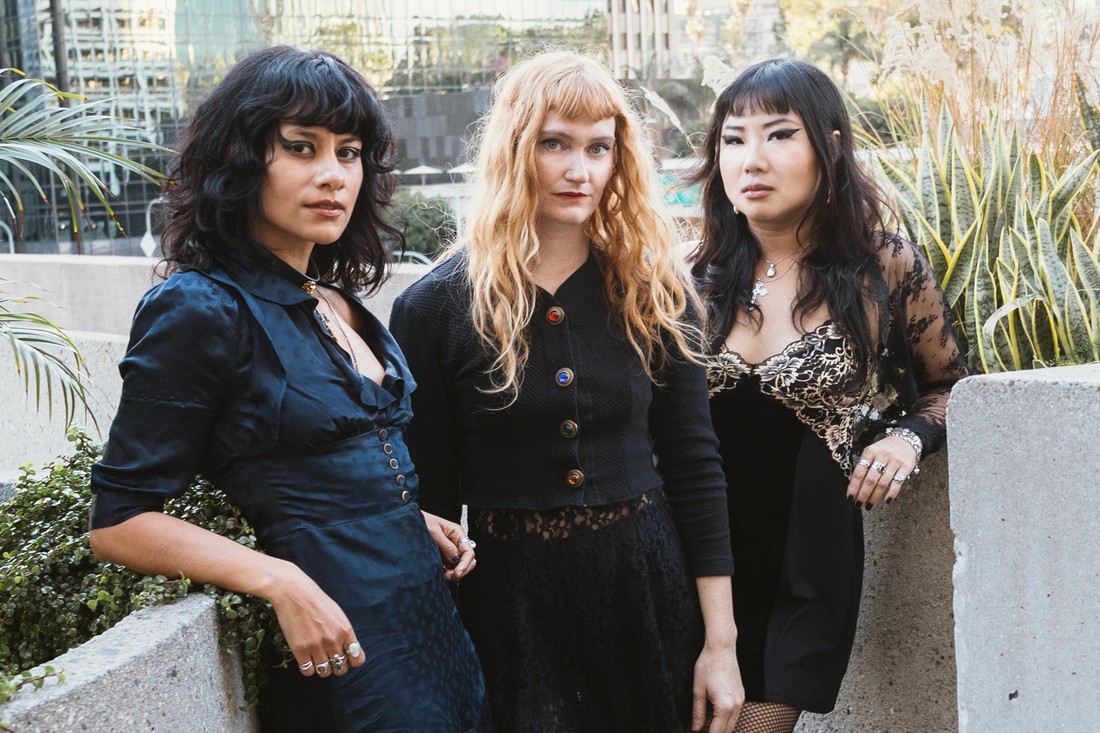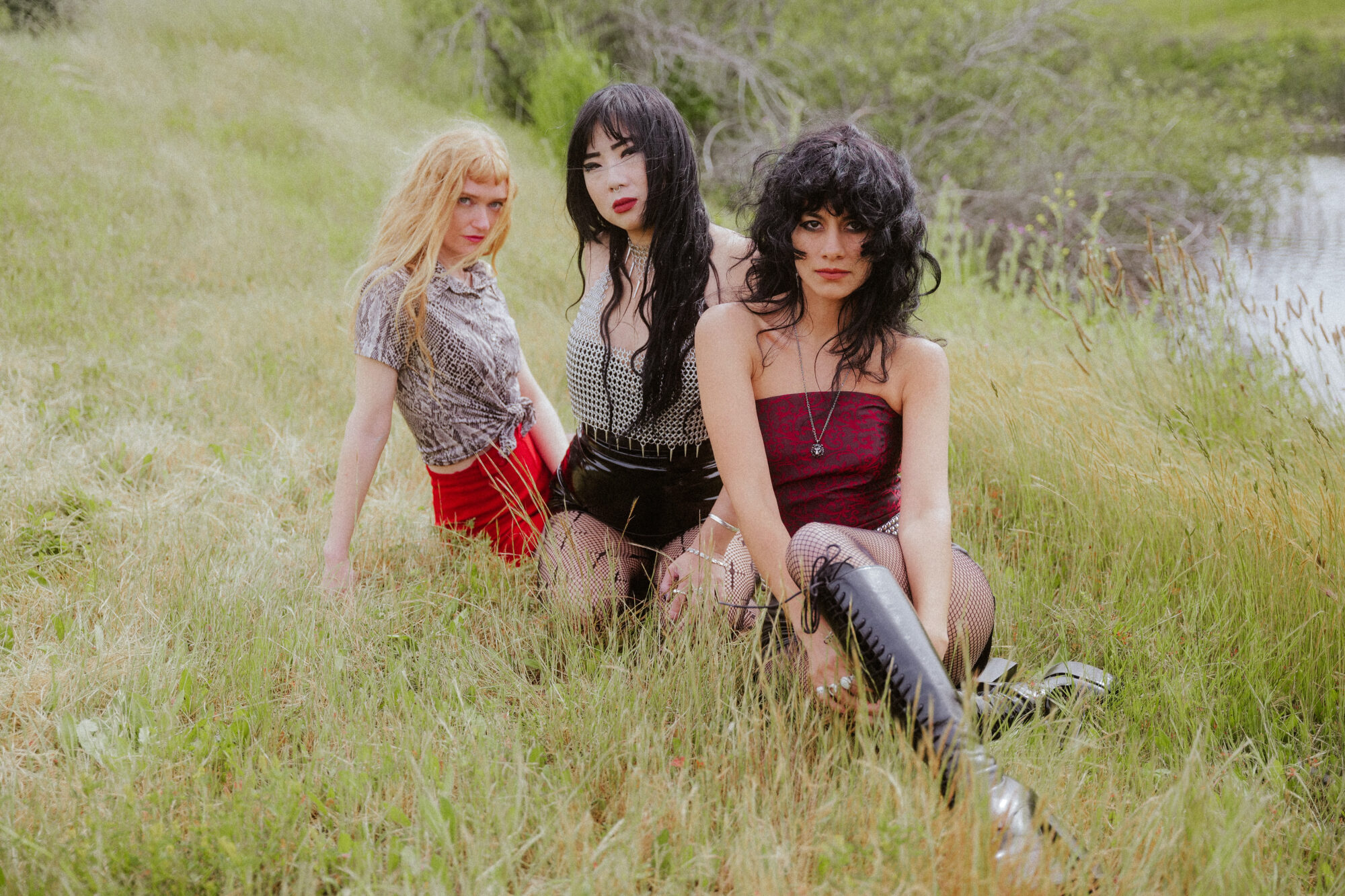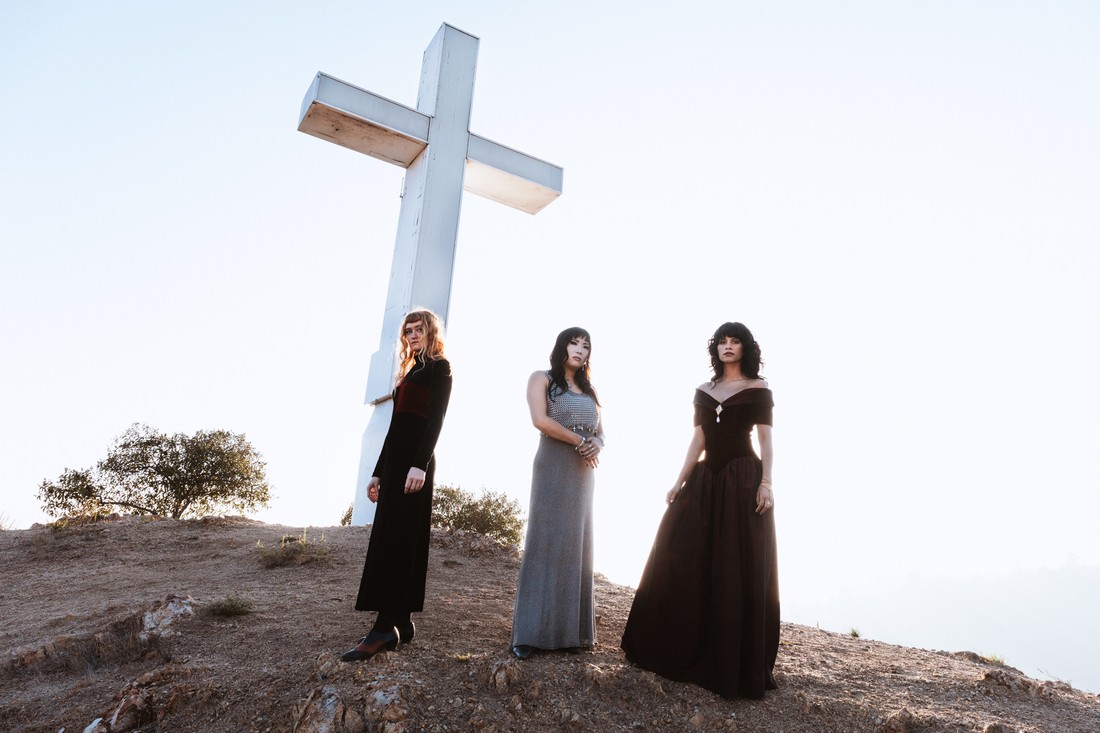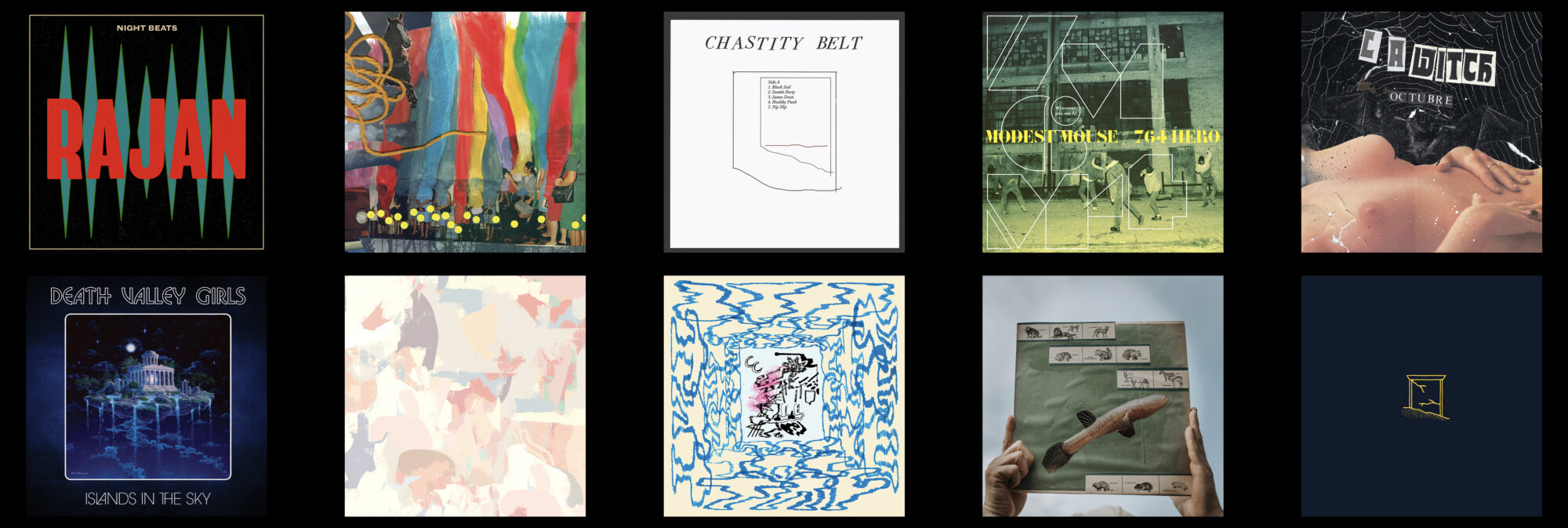Bio
L.A. Witch have always exuded an aura of effortless cool, whether it manifested as the Americana noir and laconic back-to-basics rock n’ roll of their self-titled debut or the blistering austere adventurism of their sophomore album Play With Fire. The band—comprised of Sade Sanchez (guitar/vocals), Irita Pai (bass), and Ellie English (drums)—began as an informal affair, but the sultry and beguiling reverb-draped songs they created caught on with the public, moving the project beyond the insular space of the band’s friends and peers in Southern California into the broader world. On their latest album, DOGGOD, the trio push their craft beyond their previous creative and geographical confines, opting to craft the material in Paris, recording the tracks at Motorbass Studio on the Rue de Martyrs. DOGGOD explores broader swaths of sonic terrain, employs a greater arsenal of tones, and probes larger existential and cosmic themes, all while retaining the band’s signature sense of the forbidden, the forsaken, and the foreboding.
DOGGOD is a way of tackling the universal riddle tangled in the spiritual nature of love and devotion. “I feel like I’m some sort of servant or slave to love,” says Sanchez. “There’s a willingness to die for love in the process of serving it or suffering for it or in search of it… just in the way a loyal, devoted servant dog would.” The album title is a palindrome fusing together DOG and GOD—an exaltation of the submissive and a subversion of the divine. It’s a nod to the purity of dogs and an acknowledgement of their unconditional love and protective nature that’s at odds with the various pejoratives associated with the species. “There is this symbolic connection between women and dogs that expresses women’s subordinate position in society,” Sanchez explains. “And anything that embodies such divine characteristics never deserved to be a word used as an insult.”
These conflicted explorations of love and subservience manifest themselves in L.A. Witch’s fusion of their trademark smooth and smoky garage alchemy with a newfound utilization of post-punk’s disciplined reserve and icy instrumentation. Album opener “Icicle” captures the band journeying out of the proto-punk, psychedelia, and gritty riffage of the ‘70s into the chorus-drenched guitars and forlorn minimalism of Joy Division and early The Cure. A parallel is drawn between romantic suicide and martyrdom that carries over into the second song, “Kiss Me Deep.” Here Sanchez describes a love so pure that it transcends time and carries over into multiple lifetimes. It’s a song about passion delivered in the worldly and wounded stoicism of early goth pioneers. From there, the band segues into the lead single “777,” a song about devotion to the point of death. A propulsive beat, a driving distorted riff, and Sanchez’s ethereal vocals come together to create a song that’s both dire in its fatalism and sensual in its faithful passion.
Across the entirety of DOGGOD, L.A. Witch never strays from their muse. On “I Hunt You Pray,” Pai lays down a hypnotic bass throb while English employs a cyclical krautrock groove and Sanchez paints a picture of an abandoned dog on the roadside, alone in the night, living as both the hunter and the hunted. On “Eyes of Love,” the band harnesses the meditative mid-tempo repetition, deconstructed chords, and esoteric ruminations on love, death, and spirituality that made Lungfish such a beloved entity. It reinforces the parallel between the unwavering love seen in the eyes of a dog and the self-sacrifice of a savior. On “The Lines,” the band takes the propulsive pulse of post-punk and adds an extra dose of chorus to the mix. “Chorus is a modern effect that comes from the idea of replicating the slight pitch discrepancies of a choir. There is a shimmering quality which ties us back into this spiritual godly feel,” Sanchez explains. Coupled with the addition of organ and applied to a brooding minor-key melody, the song simultaneously conjures both the holy and the sacrilegious. The title track “DOGGOD” bears perhaps the strongest resemblance to the material found on the previous album Play With Fire, pitting lean and mean guitars against a scrappy rhythm section and dreamy vocals. But whereas their previous album was a rallying cry to carving one’s own path, “DOGGOD” adheres to the album’s “til death do us part” theme, going so far as to describe a level of submission that crosses over into dangerous and unhealthy places, with Sanchez singing “hang me on a leash / ‘til I wait for my release.”
Ultimately, DOGGOD is a perfect encapsulation of L.A. Witch’s approach. It’s simultaneously romantic and menacing, reverent and profane, a celebration and a lament. It finds the thread between the past and present, taking familiar sounds and revamping them for the modern age. But it also heralds a new era for the band, looking beyond the Kodachrome memories of midcentury America and digging deeper into the medieval and gothic energies of Paris and beyond, all while probing inward at a sullied heart.



